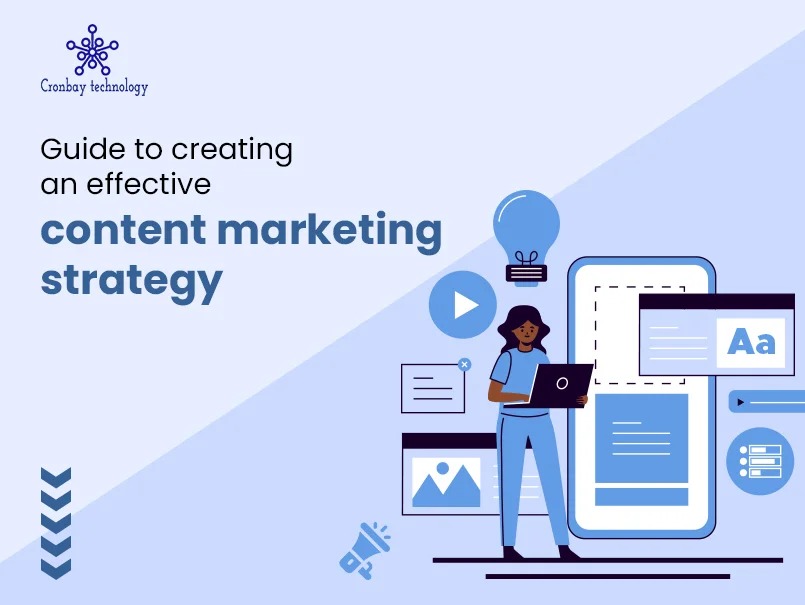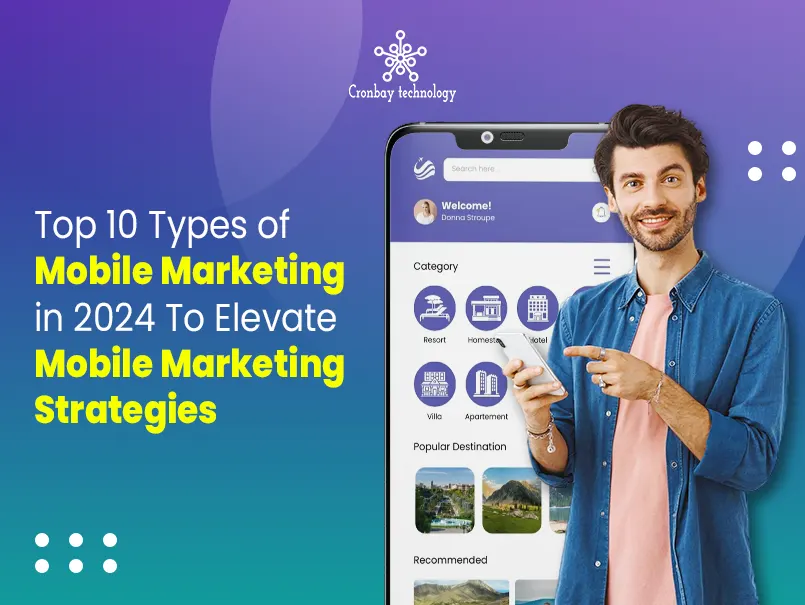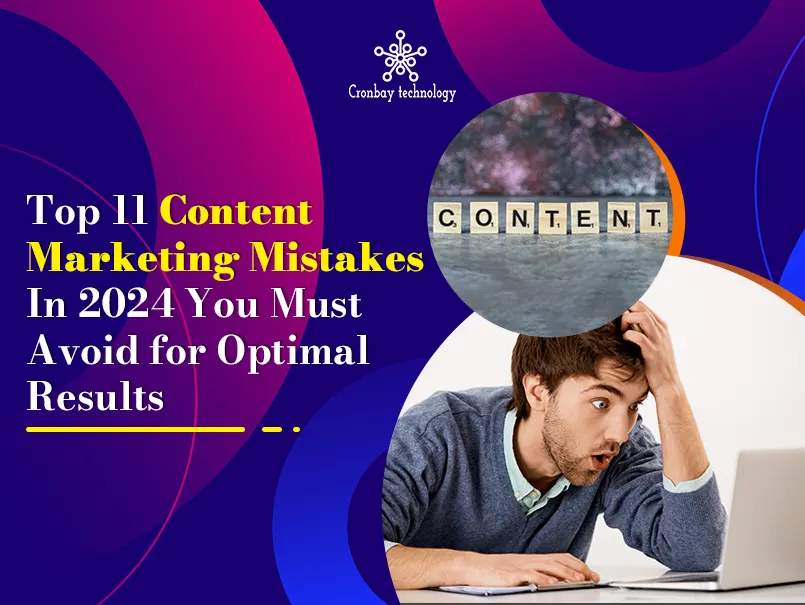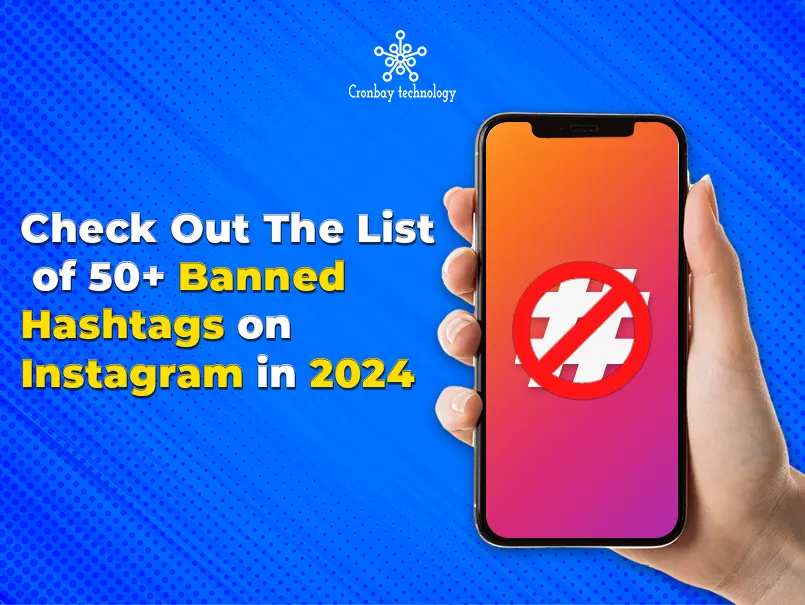No matter how long it's been since you last updated your content strategy plan, it never hurts to do so and ensure that your material is fresh, original, and engaging for your prospects and consumers — no matter when or how they intend to purchase.
There are several ways to leverage content (audio, visual, and textual) to meet your business objectives. At each step of the funnel, a well-executed content strategy will draw in your target audience and keep them interested even after the sale is made. It is estimated that content marketing revenue would reach 66 billion U.S. dollars by 2022, and the sector is expected to treble sales by 2026.
How do I create a content strategy for my business?
Let's get into the nitty-gritty of creating a content marketing strategy.
- Define your end aim
Your goal in creating a content marketing strategy? Why do you need it when creating content and implementing an effective marketing strategy? Having a clear idea of what you want to achieve will simplify choosing the optimal method. If you need assistance thinking out the correct content objectives, you may use this goal planning template. - Conduct persona research, if necessary
If you want to develop a successful marketing strategy, you must first identify your target demographic, which is also known as your buyer persona.This is particularly critical for people just starting in the marketing industry. When you know who you're writing for, you'll be able to create content that people want to read and take action on.
Experienced marketers should consider whether or not their target market has shifted.
It would be best to undertake market research to reevaluate your target audience's characteristics every year. - Run a content review
Most companies begin with blog postings when they are just getting started. The best and worst-performing material may be identified with the help of a content audit if you wish to experiment with new forms. Then, based on that data, choose your next course of action.An annual assessment of your content marketing efforts and outcomes is a good idea if your company has been around.
Get creative and come up with fresh objectives for the new year. An excellent moment to align your team's aims with those of your business is right now, while you have the opportunity to do so.
A content audit may help you evaluate what connects most with your audience, uncover gaps in your subject clusters, and create new content ideas, regardless of your stage in content development.
- Choose a content management platform
The development, dissemination, and analysis of material are essential components of content management. A CMS will help you develop, manage, and monitor your material efficiently and sustainably. - Publish and maintain your material
A comprehensive marketing strategy includes the sorts of content you'll produce and how you'll arrange that material.With an editorial calendar, you can ensure that your website's content is well-balanced and diversified. To effectively market and maintain your online presence, you need to set a social media content creation schedule.
What are the components of content marketing?
As you can see, there are several components to content marketing, so let's have a look at them-
- Content strategy
It all starts with a solid content strategy. Identifying the goal of your endeavours should come before everything else, including creating and disseminating content.
Even though you don't need to start from scratch when you initially begin with content marketing, you should review and change your plan at least once or twice a year. - Content creation
Your content strategy is ready to go after establishing or revising it. There are a lot of various activities that must be completed throughout the content development process, and attempting to perform them all at once is a waste of time and energy. - Content Optimization
There is more "post-work" than we initially believe in the material we produce, just as there is more prep work.
If your content isn't optimized for the consumer journey outlined in your marketing plan, it doesn't matter how well-written or visually appealing.
Find more tips on content optimization here. - Content distribution
Once the material has been conceived, generated, and optimized, it's time to put it out! A site that receives a lot of organic traffic and is found "on its own" might benefit from distribution efforts. - Content repurposing
You may get more people to see your work by reusing it and distributing it. On the other hand, content repurposing focuses on introducing your website's content to those who aren't already familiar with it.
What do I need for a content strategy?
Effective strategies begin with understanding what motivates your target audience to take action. Your audience's search habits may then be mapped out by keyword research. In the end, you develop content around these themes that fulfil their search intent.
Content planning also has SEO advantages that should not be overlooked. The largest share of the internet market is companies that make significant investments in organic search.
How often should I update my content marketing strategy?
If your plan hasn't been revised in the last two to three years, it's time to do so. For this reason, a marketing strategy that is more than 24-36 months old may not consider recent advancements in marketing. During a 2021 study of marketers from across the world, 97% of the people said that content marketing is part of their entire marketing strategy.
Newer approaches, including content marketing, consumer analytics, account-based marketing, and programmatic purchase, are all worthy of attention. Your strategy should be reevaluated every 12-18 months to ensure that it aligns with your fundamental principles and overall company plan while also enabling you to take advantage of new possibilities.
Final Thoughts
In the beginning, developing a content marketing strategy may seem like a lot of work. However, you'll enjoy the benefits for years to come. The more hard work you put into producing and advertising high-quality content, the more you'll build your authority, traffic, and income. You'll have a hard time getting any traction with your material if you don't have a plan.
Over time, you'll be able to fine-tune your content approach. You'll have more data to work with and better understand your audience if you publish more and do more trials. Click here to get professional assistance.
Frequently Asked Questions
1. What is the expense of content marketing?
Ans.
This is a challenging question to answer since it depends on the sort of material, what you want to accomplish, and how fast you need it.
Your most cost-effective technique will be content marketing after it has had time to grow. Although content marketing may be done on any budget, the time and resources needed to create a plan that works and produce the correct sort of material that generates results must be taken into account.
2. What can you anticipate from content marketing?
Ans. It all depends on what you're looking for and what you're hoping to achieve. Once your content marketing strategy has developed, you may generally anticipate one or more of the following outcomes: Brand awareness | Engagement | Search visibility
3. How can content marketing be measured?
Ans. Content marketing's primary quantifiable outcomes are the ratio of leads to customers, the ratio of visitors to leads, and the average customer lifetime value. There are a variety of tools available to help you track the effectiveness of your content marketing campaigns. Social Mention, Google Analytics and social media stats are just a few of the various methods you may monitor your progress.





